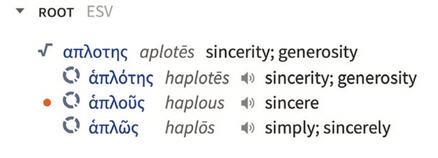SCRIPTURAL BIBLE INTERPRETATION

SCRIPTURAL BIBLE INTERPRETATION
Below is an example of Bible interpretation of a “word” or “phrase” based on comparing not only various scriptures which address the same topic, but also various Bible translations of those verses.
What Does “The Eye Is the Lamp of the Body” Mean?
By Randy Leedy
Our Savior was a master of enigma, a device by which he made his hearers think. In Matthew 6:22-23 we find a teaching whose initially enigmatic character resolves, under patient study, into delightful clarity.
Matthew 6:22-23
“The eye is the lamp of the body; so then if your eye is clear, your whole body will be full of light. “But if your eye is bad, your whole body will be full of darkness. If then the light that is in you is darkness, how great is the darkness!” (NASB)
“The eye is the lamp of the body. So, if your eye is healthy, your whole body will be full of light, but if your eye is bad, your whole body will be full of darkness. If then the light in you is darkness, how great is the darkness!” (ESV)
Light and darkness in this passage clearly refer to morality. Our nature as sinners created in God’s image results in this dual moral character: good and evil. The passage’s final statement is an exclamation that the person whose very best is thoroughly evil is evil indeed, beyond measure. This much is easy enough to understand.
What, though, does the eye have to do with it? The words “healthy” and “bad” seem to imply that Jesus is talking about the physical organ, but in context a moral reference seems more likely. While many plausible guesses have emerged, a search for other passages using the same or similar language is methodologically wise and, as happens often, yields information that renders such guesswork unnecessary.
First, though, let’s notice the variety of renderings found among major English versions for the Greek words translated by the English Standard Version as “healthy” and “bad.”
King James Version – “evil/bad”
New King James Version – “good/bad”
New Revised Standard Version – “sound/not sound”
New Revised Standard Version – “healthy/unhealthy”
New American Standard Bible – Clear/Bad
New English Translation – Healthy/Diseased
Christian Standard bible – “Healthy – Bad
New International Version – Healthy/Unhealthy
Most of these versions imply that Jesus is talking—at least on the concrete level in this figurative passage—about the physical eye’s functional condition. The KJV, though, points us in a slightly different direction that provides a better understanding.
The Bad Eye
Many cultures have an expression, “the evil eye,” for various kinds of destructive actions or dispositions. The Hebrew Old Testament uses this exact expression or a very close parallel at least five times:
Deuteronomy 15:9, “”Beware that there is no base thought in your heart, saying, ‘The seventh year, the year of remission, is near,’ and your eye is hostile toward your poor brother, and you give him nothing; then he may cry to the Lord against you, and it will be a sin in you. (NASB)
Deuteronomy 28:54, “The man who is refined and very delicate among you shall be hostile toward his brother and toward the wife he cherishes and toward the rest of his children who remain,…” (NASB)
Deuteronomy 28:56, “The refined and delicate woman among you, who would not venture to set the sole of her foot on the ground for delicateness and refinement, shall be hostile toward the husband she cherishes and toward her son and daughter,…” (NASB)
Proverbs 23:6, “Do not eat the bread of a selfish man, Or desire his delicacies;…” (NASB)
Proverbs 28:22, “A man with an evil eye hastens after wealth, and does not know that want will come upon him.” (NASB)
Each relates to money or material things and refers to viewing others through the lens of one’s own wealth or gratification. The basic idea of the “evil eye” in the OT, then, is greed or covetousness.
This meaning perfectly fits Jesus’ use of the expression in Matthew 20:15, in reply to the day-long workers in the vineyard who protest that they received no greater pay than those who found labor only at the eleventh hour: “Do you begrudge my generosity?” (ESV), which, translated literally, reads, “Is your eye evil because I am good?”
Those whom Jesus portrays as in moral darkness (v. 23b), then, are those who view and treat others selfishly, especially in the material realm, as the extended context of Matthew 5 supports. Though material wealth may get the focus, more psychological forms of narcissism seem to warrant inclusion as well.
The Healthy Eye
From here it becomes easy to understand what Jesus means, in contrast, by the “healthy” or “single” eye. The basic meaning of the Greek adjective here (haplous) is that something is single that might possibly instead be multiple or divided. The person with an “evil eye” often has a dual agenda: a generous exterior masking a greedy heart. Those with a “single eye” have no greed to mask: they view others, rather, as people whom they can selflessly serve. This understanding of the expression strongly coincides with other NT usages of this word (See the note below), which strongly feature self-giving service and devotion. Only with such a selfless outlook will we have the moral clarity to see life’s issues rightly (and thus find true joy!); covetousness and narcissism blind and leave us in the profoundest moral darkness.
